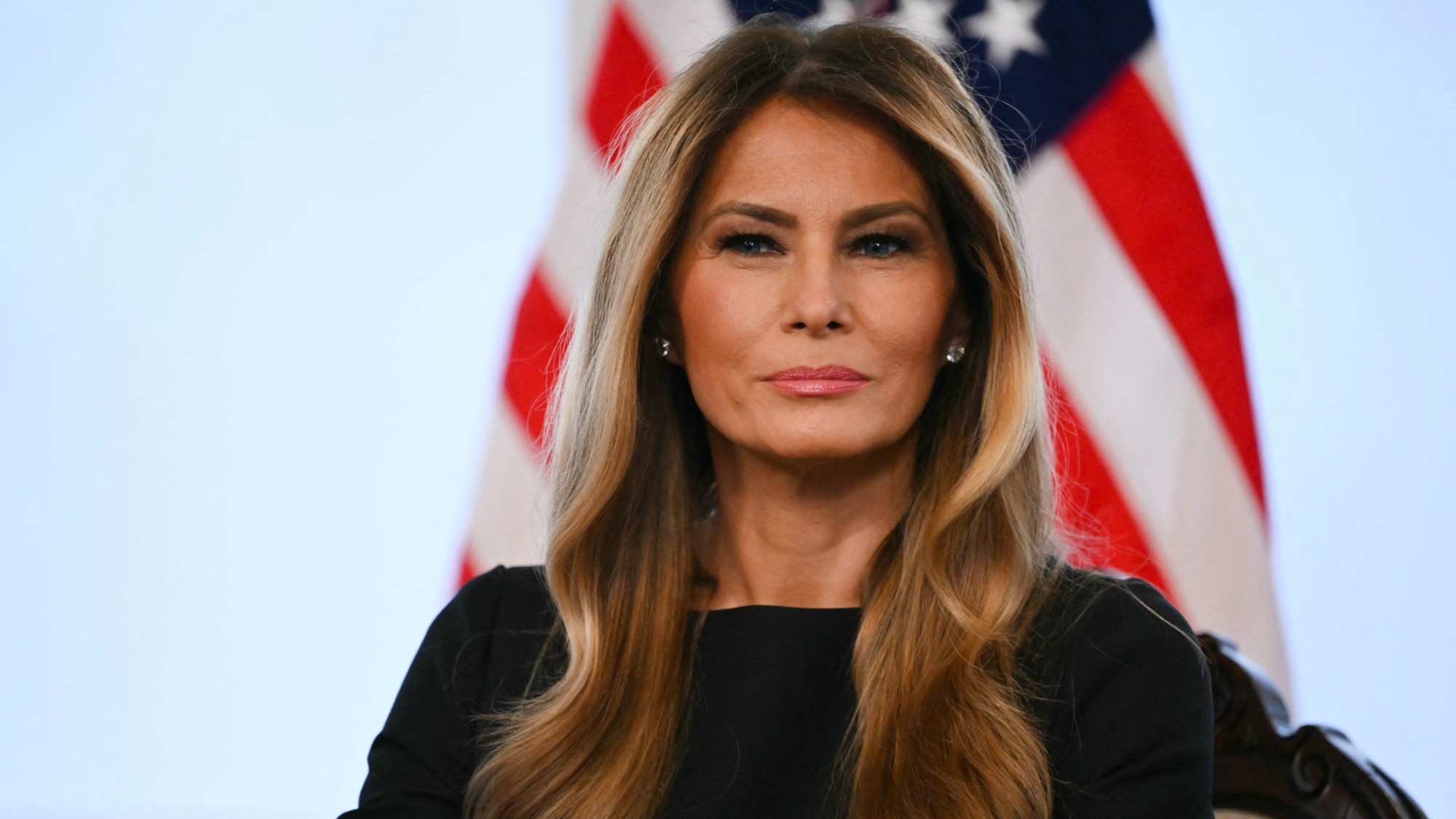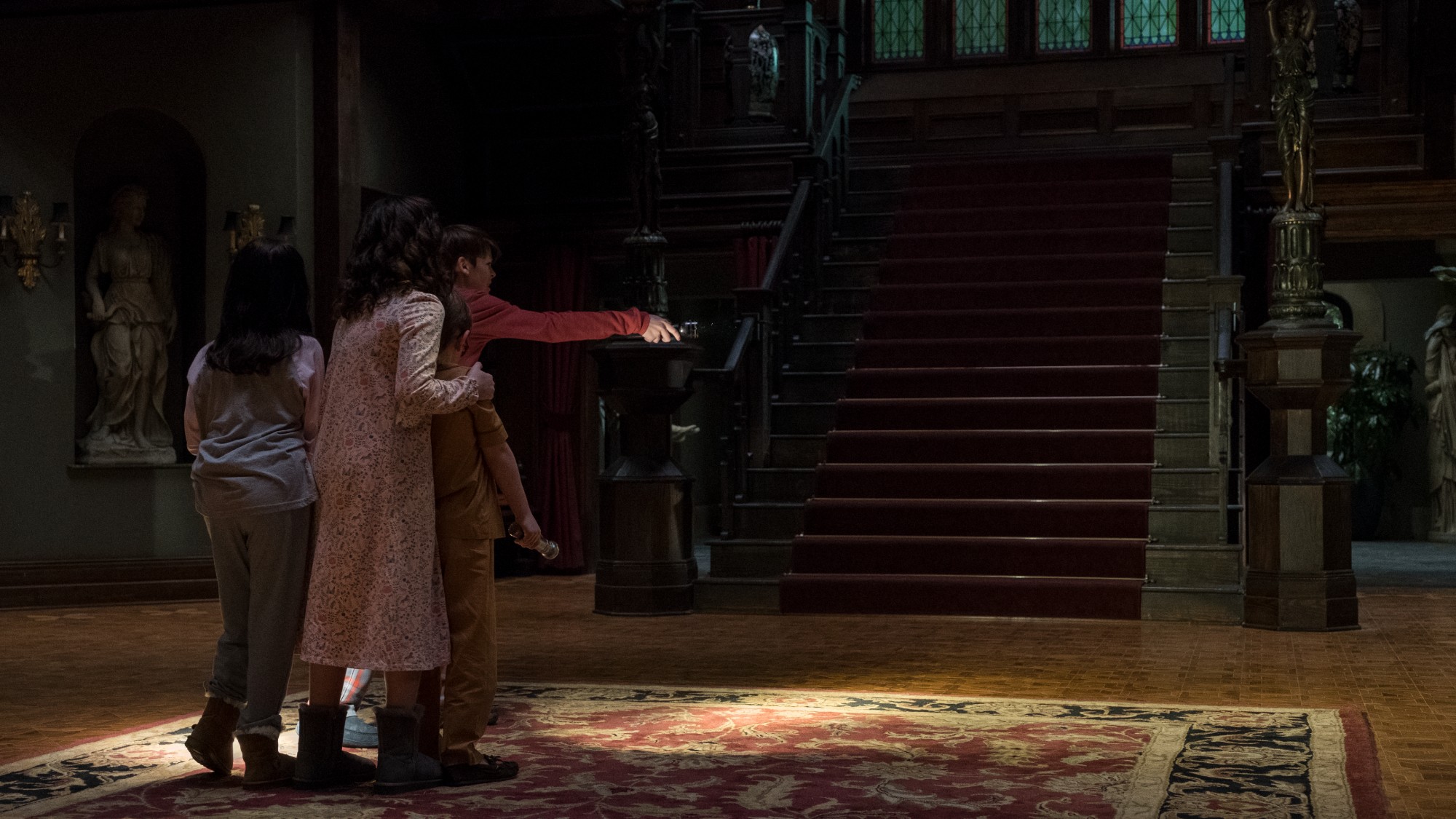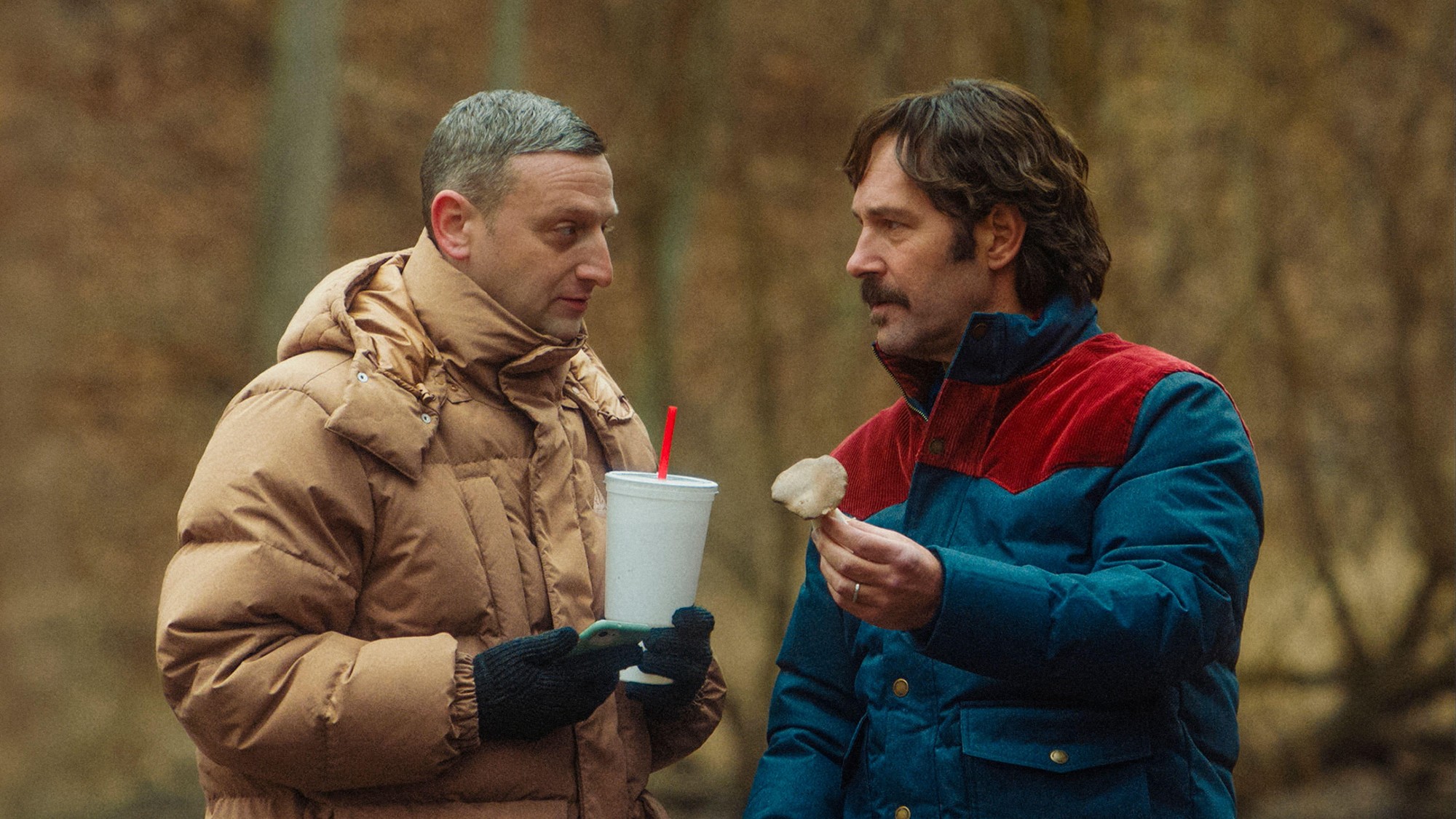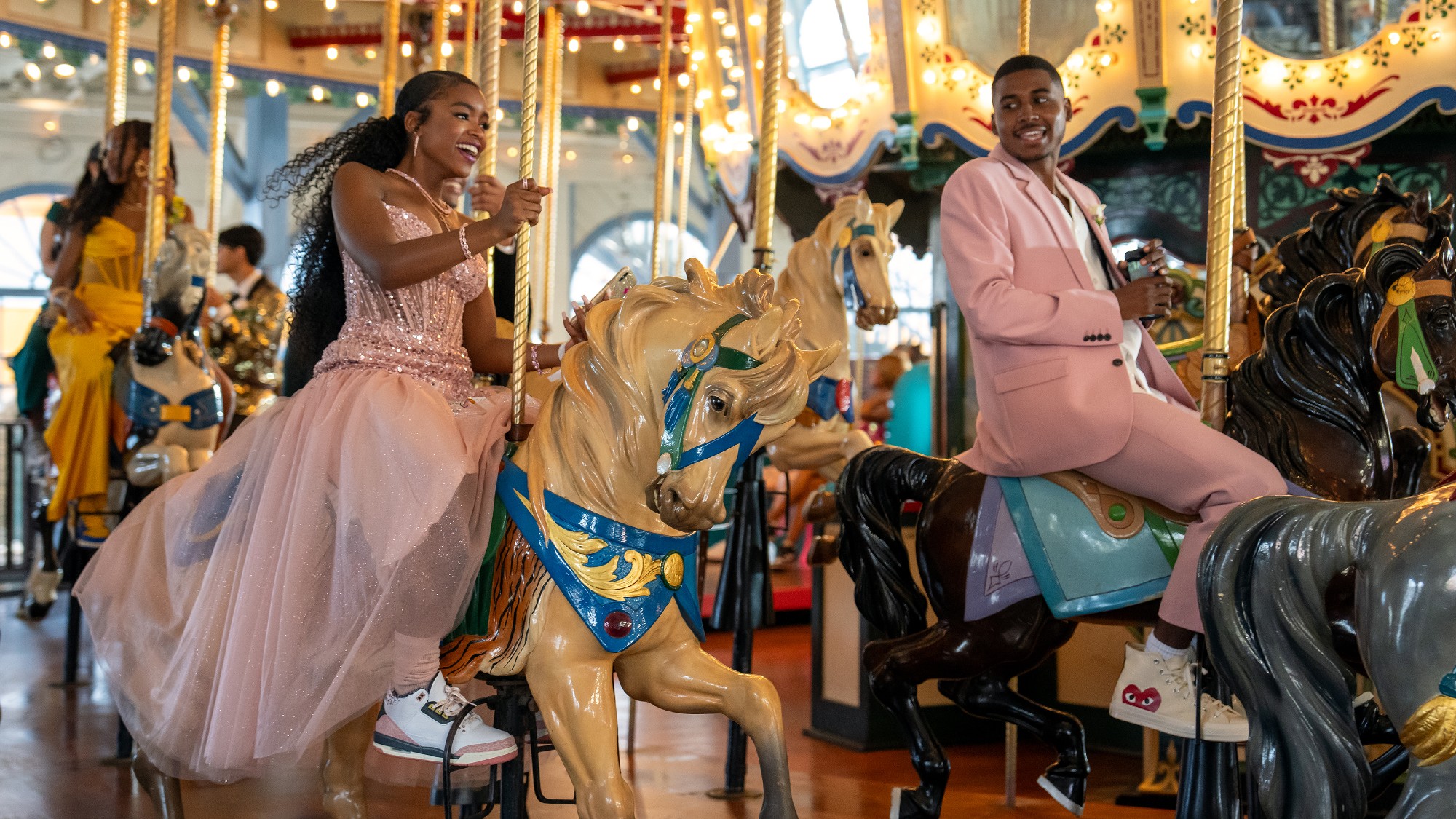TV revolution: BBC-Amazon deal signals the way ahead
Prudent auntie: why the BBC is climbing into bed with Amazon to keep 'Ripper Street' alive

A free daily email with the biggest news stories of the day – and the best features from TheWeek.com
You are now subscribed
Your newsletter sign-up was successful
TELEVISION, the statistics suggest, is losing its hold over us. Only one adult in three would find it “very hard” to give up TV, according to an American study released this week, while more than half said it would be very hard to stay off the internet.
Part of the reason may well be that the distinction between television and the internet is collapsing: if you have access to the internet, you have access to TV programmes too, regardless of whether you’re at home, in the office or on a bus. Nor is it just how we watch that’s evolving. The internet is also changing what we watch.
Amazon’s decision to pick up Ripper Street, a drama dropped by the BBC after a single series, is just the latest sign that traditional broadcasters no longer have the sole right to determine which programmes get made. Netflix pioneered the approach, first resurrecting Arrested Development, a cult show cancelled by Fox in 2006, and then producing its own programming, most notably a remake of the British political drama House of Cards. These upstarts approach the commissioning process in a very different way from the more established studios and broadcasters. Instead of basing their decisions on the whims and hunches of their executives, they look for cold hard data. "We climb under the hood and get all greasy with algorithms, numbers and vast amounts of data,” says Todd Yellin, vice president of product innovation – a job title that’s revealing in itself – at Netflix. He told The Guardian that the company examines the behaviour of its subscribers in minute details, mining it for insights that will guide them to what the next hit might be. “If they [the subscribers] play one title,” he says, “what did they play after, before, what did they abandon after five minutes?" Amazon, renowned for its data-driven approach to pricing, stock management and distribution is likely to bring a similar rigour to its commissioning. Could traditional broadcasters end up outflanked by their aggressive young rivals and their mind-reading technology? That seems unlikely in the short term, but the BBC is worried enough to hedge its bets over Ripper Street.
The Week
Escape your echo chamber. Get the facts behind the news, plus analysis from multiple perspectives.

Sign up for The Week's Free Newsletters
From our morning news briefing to a weekly Good News Newsletter, get the best of The Week delivered directly to your inbox.
From our morning news briefing to a weekly Good News Newsletter, get the best of The Week delivered directly to your inbox.
The BBC and Amazon are sharing the production costs of series two - but the corporation will get to broadcast it only after subscribers to Amazon’s Prime video-on-demand service (formerly called LoveFilm) have had their chance to see it. This speedy change of heart – it cast the show adrift as recently as December – may be prudent, given that the BBC has the most to lose if TV becomes just another online commodity. Small companies producing a few big hits can pay through the roof for talent, skewing the market and luring stars away from the traditional broadcasters. TV on the web, like music on the web, is likely to diverge into two markets: one for cheaply produced niche material catering to a small audience, and another for the few lavish productions that can attract big audiences and premium prices. The BBC in particular, with its broad-brush, even-handed, public service DNA, would struggle in an online environment in which huge pools of money gathered around a handful of projects, leaving loose change for everything else. By going into partnership with Amazon, the BBC has secured a position in a market it doesn’t yet understand – just as it did with its website back in the 1990s and the iPlayer in the 2000s. Whether the result is a new golden age of television, as it has been in the US, or the end of public service broadcasting as we know it – or both – remains to be seen.
A free daily email with the biggest news stories of the day – and the best features from TheWeek.com
Holden Frith is The Week’s digital director. He also makes regular appearances on “The Week Unwrapped”, speaking about subjects as diverse as vaccine development and bionic bomb-sniffing locusts. He joined The Week in 2013, spending five years editing the magazine’s website. Before that, he was deputy digital editor at The Sunday Times. He has also been TheTimes.co.uk’s technology editor and the launch editor of Wired magazine’s UK website. Holden has worked in journalism for nearly two decades, having started his professional career while completing an English literature degree at Cambridge University. He followed that with a master’s degree in journalism from Northwestern University in Chicago. A keen photographer, he also writes travel features whenever he gets the chance.
-
 Local elections 2026: where are they and who is expected to win?
Local elections 2026: where are they and who is expected to win?The Explainer Labour is braced for heavy losses and U-turn on postponing some council elections hasn’t helped the party’s prospects
-
 6 of the world’s most accessible destinations
6 of the world’s most accessible destinationsThe Week Recommends Experience all of Berlin, Singapore and Sydney
-
 How the FCC’s ‘equal time’ rule works
How the FCC’s ‘equal time’ rule worksIn the Spotlight The law is at the heart of the Colbert-CBS conflict
-
 February TV brings the debut of an adult animated series, the latest batch of ‘Bridgerton’ and the return of an aughts sitcom
February TV brings the debut of an adult animated series, the latest batch of ‘Bridgerton’ and the return of an aughts sitcomthe week recommends An animated lawyers show, a post-apocalyptic family reunion and a revival of a hospital comedy classic
-
 Melania: an ‘ice-cold’ documentary
Melania: an ‘ice-cold’ documentaryTalking Point The film has played to largely empty cinemas, but it does have one fan
-
 The 8 best hospital dramas of all time
The 8 best hospital dramas of all timethe week recommends From wartime period pieces to of-the-moment procedurals, audiences never tire of watching doctors and nurses do their lifesaving thing
-
 The 8 best horror series of all time
The 8 best horror series of all timethe week recommends Lost voyages, haunted houses and the best scares in television history
-
 The 8 best comedy movies of 2025
The 8 best comedy movies of 2025the week recommends Filmmakers find laughs in both familiar set-ups and hopeless places
-
 The best drama TV series of 2025
The best drama TV series of 2025the week recommends From the horrors of death to the hive-mind apocalypse, TV is far from out of great ideas
-
 The 8 best drama movies of 2025
The 8 best drama movies of 2025the week recommends Nuclear war, dictatorship and the summer of 2020 highlight the most important and memorable films of 2025
-
 The 8 best comedy series of 2025
The 8 best comedy series of 2025the week recommends From quarterlife crises to Hollywood satires, these were the funniest shows of 2025